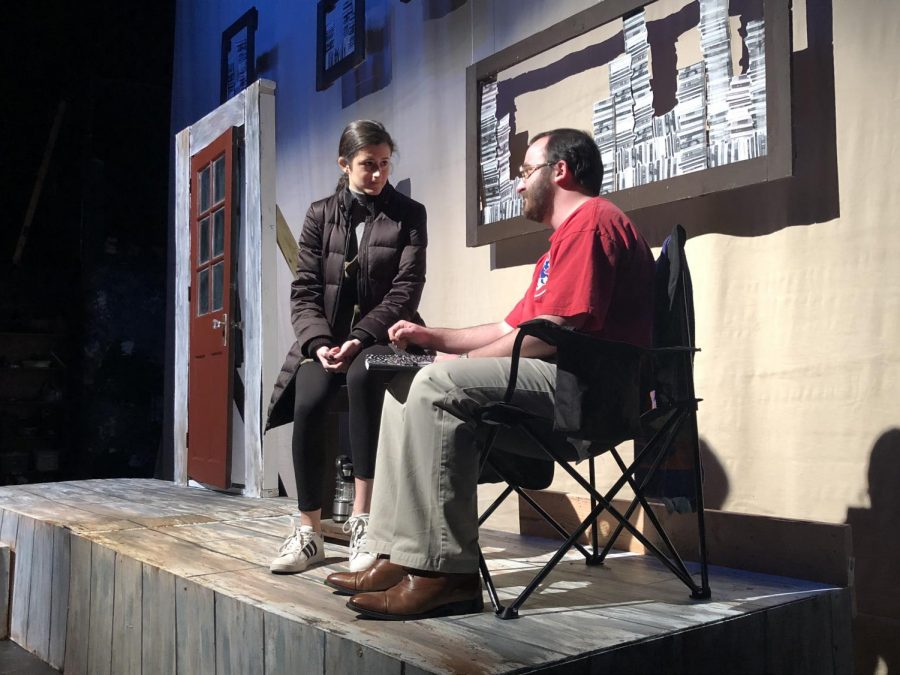Mimes Renders “Proof” Excellently
By Kieran Press-Reynolds
For four nights last week, the Fordham Mimes and Mummers put on “Proof.” I attended the first showing on March 28 and I was blown away.
“Proof” is a play by David Auburn. The play premiered Off-Broadway in mid-2000 and transferred to Broadway later in the year, eventually winning the 2001 Pulitzer Prize for Drama and the Tony Award for Best Play.
The play follows four characters, including 25-year-old Catherine (Amanda McNulty), her sister, Claire (Cat Rabus), her father, Robert (Michael Bottei) and a longtime student of Robert, Hal (Patrick Jennings).
Throughout her adult life thus far, Catherine has been both figuratively and literally living in Robert’s shadow. Her intellect is dwarfed by her father’s mathematical genius, and when her father becomes severely mentally ill, she must stay at home to care for him instead of pursuing her own career.
When Robert dies, Hal attempts to sort through the hundreds of notebooks Robert scribbled into during his final years, trying to find anything remarkable left behind. Catherine and Hal become intimate, which leads Catherine to give Hal the key to a locked drawer in her father’s office. In the drawer is a notebook containing something incredible: a groundbreaking proof about prime numbers. To Hal and Claire’s shock, Catherine reveals she wrote the proof.
Hal and Claire do not believe that Catherine wrote the proof, which outrages her. Claire attempts to bring Catherine back to live in New York with her — fearing that she has become ill like her father — and Hal takes the notebook to confirm the proof. Eventually, Catherine refuses to go to New York and Hal apologizes to her. The play ends with Catherine explaining the proof to Hal.
It is a fascinating narrative, full of hilarious comedic bits — like when Claire gets wicked drunk and spills a bunch of beer pong cups — and balanced with poignant, unsettling segments, including an especially chilling flashback scene when Catherine realizes that her father has truly gone mad.
The acting was superb and compelling. McNulty did a stellar job at portraying Catherine, lending the character a sharp sense of distress and forlornness. Rabus, Bottei and Jennings, similarly, played their characters excellently. McNulty and Jennings’ chemistry was evident, especially during the romantic portions.
The lighting and sound were also great. Some scenes were dimly-lit, conveying an apt level of mystery and emotional ambivalence, while others were bright. Haunting ambient music filled in the gaps and helped to cultivate the atmosphere as well.
“Proof” deals with many critical topics, like the need to de-stigmatize mental illness and the importance of believing women. As Sam French, the director, writes in his Director’s Note, “Since Proof was first performed in 2000… great strides forward have been taken… but we have a great deal of work still to do.”









































































































































































































